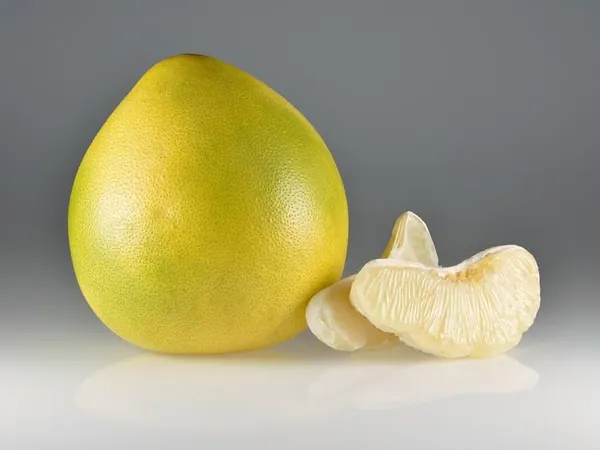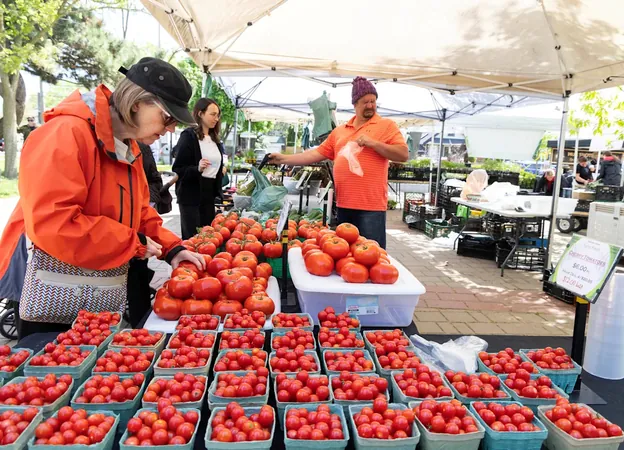
Unleashing Plant Power: A Breakthrough in Pathogen Resistance!
2025-09-17
Author: Olivia
Revolutionary Discoveries at RIKEN Center
A groundbreaking study at Japan's RIKEN Center for Sustainable Resource Science has unveiled a game-changing immune receptor that could redefine how plants defend themselves against a multitude of plant pathogens. Led by Ken Shirasu, the team has identified a remarkable protein called SCORE (Selective COld shock protein Receptor) capable of detecting 'cold-shock' proteins from over 85% of known bacteria, as well as fungi and some insects.
Engineering Synthetic Defenses for Plants
Published in Science on September 4, the research reveals that by manipulating SCORE’s structure, scientists can tailor it to recognize different cold-shock proteins. This innovative approach paves the way for engineering synthetic receptors, granting crops and trees enhanced defenses against a wide array of diseases.
The Plant Pathogen Challenge
Flowering plants like rice, wheat, olive trees, and bamboo often face daunting threats from infections that hinder growth and yield. While plants possess natural defense mechanisms through receptor proteins that identify pathogen molecules, no single receptor can tackle every existing or future pathogen threat. Although some receptors from plant families, such as cabbages and broccoli, can be successfully transferred to relatives like tomatoes and potatoes, fewer than ten effective receptor–microbe pairs have been cataloged so far.
A Pathway to Discovery: From Pomelo to Plant Defense
In their quest to bridge this knowledge gap, Shirasu's researchers sifted through over 1,300 receptors derived from 350 plant genomes. They stumbled upon SCORE in the pomelo, a common citrus plant. This receptor reacts to certain cold-shock proteins by recognizing a unique sequence of 15 amino acids known as csp15. Remarkably, by altering specific amino acids within this sequence, the team discovered they could expand SCORE’s recognition capabilities.
A Universal Language of Pathogen Detection
Further investigations revealed that nearly all pathogens, barring viruses, produce cold-shock proteins. The amino acids in csp15 are mostly conserved, but variations at positions 6, 7, 14, and 15 play critical roles in the receptor’s recognition potential. The researchers identified over 60 variations of SCORE across diverse plant lineages, tracing it back to the last common ancestor of all flowering plants. This greatly suggests that many existing crops already possess versions of this receptor, which could be harnessed for broader disease resistance.
Implications for the Future of Agriculture
Co-author Yasuhiro Kadota remarks on the unexpected findings, pointing out that the natural variation in CSP recognition across SCORE orthologs from different plants shows that this immune receptor has evolved repeatedly to enhance pathogen detection through specific amino acid changes. By analyzing these variations in charge and sequence, the researchers can predict which cold-shock proteins each SCORE variant can recognize.
Creating Next-Gen Pathogen Fighters
The team has already started engineering new versions of the pomelo SCORE receptor. After swapping specific segments, they created receptors that can now detect pathogens that were previously undetectable. For example, while the original SCORE could not interact with cold-shock proteins from Ralstonia, Erwinia, or Xanthomonas bacteria, the newly engineered versions successfully responded to all three.
A Sustainable Future in Crop Protection
In the short term, Shirasu believes this study sets the stage for identifying and engineering immune receptors from non-model plants, particularly beneficial for long-lived perennials with limited genetic tools. First author Bruno Pok Man Ngou shared ambitious plans: "Our next goal is to introduce these engineered SCORE variants into crucial crop species to establish broad-spectrum resistance against disease and pests. This represents a sustainable strategy to boost agricultural resilience and support global food security."









 Brasil (PT)
Brasil (PT)
 Canada (EN)
Canada (EN)
 Chile (ES)
Chile (ES)
 Česko (CS)
Česko (CS)
 대한민국 (KO)
대한민국 (KO)
 España (ES)
España (ES)
 France (FR)
France (FR)
 Hong Kong (EN)
Hong Kong (EN)
 Italia (IT)
Italia (IT)
 日本 (JA)
日本 (JA)
 Magyarország (HU)
Magyarország (HU)
 Norge (NO)
Norge (NO)
 Polska (PL)
Polska (PL)
 Schweiz (DE)
Schweiz (DE)
 Singapore (EN)
Singapore (EN)
 Sverige (SV)
Sverige (SV)
 Suomi (FI)
Suomi (FI)
 Türkiye (TR)
Türkiye (TR)
 الإمارات العربية المتحدة (AR)
الإمارات العربية المتحدة (AR)